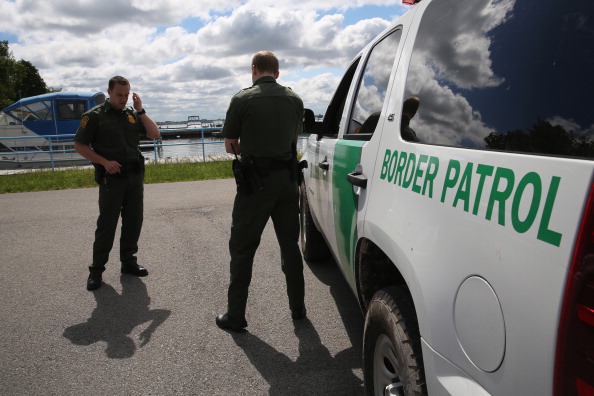Since President Trump took office, the Border Patrol has revived a little-noted search policy, far from the U.S.-Mexico border, reports NBC News — and reports of racial profiling are common.
Officers are boarding buses and trains all across the northern part of the country, hunting for non-citizens. And according to some who have witnessed the searches and questioning, they appear to be targeting people of color.
NBC quotes Mercedes Phelan, who is black, Puerto Rican and a U.S. citizen, as saying she has been questioned twice — once on a Greyhound bus in Pennyslvania, once on an Amtrak train in Syracuse, NY.
“I was super angry because [they were] obviously profiling,” Phelan told the network. “They literally skipped over every single white person.”
She said she watched agents walk down the aisles, stopping to question people of color, asking “Are you from here? Do you have papers?”
In 2017, Customs and Border Protection (CBP), the agency that oversees the Border Patrol, reversed an Obama-era decision to restrict such operations. Since then, NBC says, train and bus passengers have been “stopped, questioned and detained with increasing frequency.”
According to emails provided to NBC by the Maine chapter of the American Civil Liberties Union (ACLU), a Border Patrol official in Maine told agents in November 2017 that they were ready to resume boarding buses and wished them “Happy hunting!”
“Under immigration law, agents have the authority to search vehicles without a warrant ‘within a reasonable distance from any external boundary of the United States,’ which CBP interprets as within 100 miles of any land or water border, north or south.” More than half the U.S. population lives in that zone.
The ACLU told the network that many of the searches appear to be unconstitutional:
“Under the Fourth Amendment, passengers cannot be detained and questioned by Border Patrol without reasonable suspicion that they are deportable … and that suspicion cannot be based on someone’s skin color or ability to speak English.”
The searches were restricted during most of the Obama administration, which required “clear intelligence about smuggling or other criminal activity,” NBC says.
Passengers have the right to refuse to answer questions from the officers, but Border Patrol training materials say “the officer does not have to advise them of this right.”
Many passengers don’t know they can refuse, and some told NBC refusal wasn’t a realistic option.
A passenger who was questioned on a bus in Maine in May says she felt “trapped” because to exit the bus “I would have had to physically push past an officer.”
